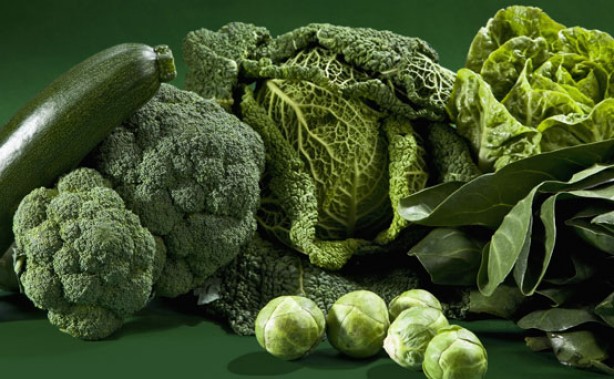 From April 2016, for the remainder of the year, I’ll be Housesitting my way around Europe while studying my Masters of Nutrition (by correspondence), blogging, meeting people, experiencing different cultures and having fun!
From April 2016, for the remainder of the year, I’ll be Housesitting my way around Europe while studying my Masters of Nutrition (by correspondence), blogging, meeting people, experiencing different cultures and having fun!
I’ve heard however, that 9 months of travelling can often have a detrimental effect on one’s health… My goal is to travel in great health, staying fit and active and eating nutritious food! Of course I’ll experience the local delights and cuisines however, aside from the health aspect, eating in restaurants for 9 months will take it’s toll on my wallet as well as my waistline.
So I’ve set myself a simple challenge for my travels:
Eat a minimum of 1 Cup of dark green vegetables EVERY DAY during my travels.
Where possible, I’m going to aim for 2, 3 cups, as many as possible!
See my daily greens intake on Instagram @getmygreens #getmygreens

Why Green Veggies?
The Australian Dietary Guidelines recommend 5 serves of vegetables every day, so why am I focussing on the lovely GREEN variety?
Green vegetables, especially dark green vegetables, are absolute power-houses full of nutrients, even more so than most other vegetables!
From pro-vitamin A and vitamins E, K, C and folate through to the range of B-vitamins B1 (thiamin), B2 (riboflavin), B3 (niacin), B5, B6, Biotin and hundreds of antioxidants. Not to forget the fabulous minerals you can find as well! Plenty of potassium, magnesium (magnesium actually for ms part of the chlorophyll molecule that makes plants green), iron, zinc, calcium and more.
ms part of the chlorophyll molecule that makes plants green), iron, zinc, calcium and more.
In fact, the only significant micronutrients that AREN’T found in green vegetables are vitamin B12, vitamin D, phosphorous and iodine!
Importantly, the B-group vitamins and vitamin C are not able to be stored in the body so it is essential that we replenish ourselves with a supply EVERY DAY.
It’s all good and well to list these micronutrients but what does it all mean? What physical benefits will you see by eating plenty of green vegetables?
MORE ENERGY*
The B-vitamin range is involved in energy production in many different ways, for example, Vitamin B5 forms a coenzyme that is used to convert glucose from carbohydrates into energy in our bodies.
THAT YOUTHFUL GLOW*
Folate (B9) is a key ingredient in DNA replication and therefore cell replication and renewal. When you have adequate folate supply in your diet, your body will turnover more old cells, replacing them with newer, younger more efficient cells. Hence, folate is found in high concentrations in areas of the body where a large amount of cell replication and growth occur eg. in sex cells, unborn babies, intestine wall cells, bone marrow and in infants and children.
SEEING CLEARLY*
Dark green veggies contain the antioxidants lutein and zeaxanthin which prevent macular degeneration, hence, preventing blindness. Additionally, provitamin-A (beta-carotene) can be converted to a form of Vitamin A that is involved in seeing light in the dark, a deficiency of which manifests itself in night-blindness.
DETOXIFY/ALKALISE*
Inflammation in the body is caused by free radicals in the body. Free radicals are produced by a number of natural processes as well as toxins in foods and the environment. Vitamins C, E, K, carotenoids as well as all the antioxidants found in green veggies act to neutralise these free-radicals in the body, detoxify and minimise inflammations.
BONE HEALTH*
Calcium in dark green veggies forms the main part of the structure in our bones and deficiencies in calcium can cause hypocalcaemia in children and osteoporosis in adults.
BLOOD CLOTTING*
Vitamin K, Calcium and Magnesium are all key in the processes that control blood clotting.
FIBRE*
Green vegetables are high in fibre which has several amazing benefits including helping to lower LDL cholesterol (the bad cholesterol), feed the good bacteria in our gut, preventing colon cancer and aiding in general digestive movement.
*Information from Understanding Nutrition, Whitney et al.
What are the best Green Veggies?
The darker the green, the more densely-packed the vegetable is with nutrients!
Vegetables like:
- Kale*
 Spinach
Spinach- Silverbeet*
- Swiss Chard*
- Beetroot, turnip and collard greens
- Broccoli*
- Broccolini*
- Brussel sprouts*
- Parsley
- Coriander/Cilantro
- Basil
- Asparagus*
- Chinese spinach*
- Chinese broccoli*
- Bok Choy*
- Spirulina**
- Chorella**
*These vegetables are best eaten cooked – methods for cooking in order of ability to retain as much nutrients as possible: lightly heated, steamed to al dente, baked at 180degC or below, simmered, boiled, poached, lightly grilled.
**These are types of algae packed with a ridiculous density of micronutrients as well as protein!
What about those days when I just can’t get greens?
Yes I cheat too! Sometimes it is really hard to just eat Green Veggies! So I LOVE Food Matters Superfood Greens as a greens supplement. One serve of their Green juice powder with some lemon in water is the perfect greens substitute!
You can find out more about this awesome Greens powder here!
Join me!

Food Matters Superfood Greens in Paris
Whether you’re travelling or not, everyone should be getting plenty of greens in their diets! So why don’t you take on this challenge at home with me!
Follow my green adventures, recipes and creations on Instagram @getmygreens and share your own daily green-vegetable fun times by tagging @getmygreens and #getmygreens !



